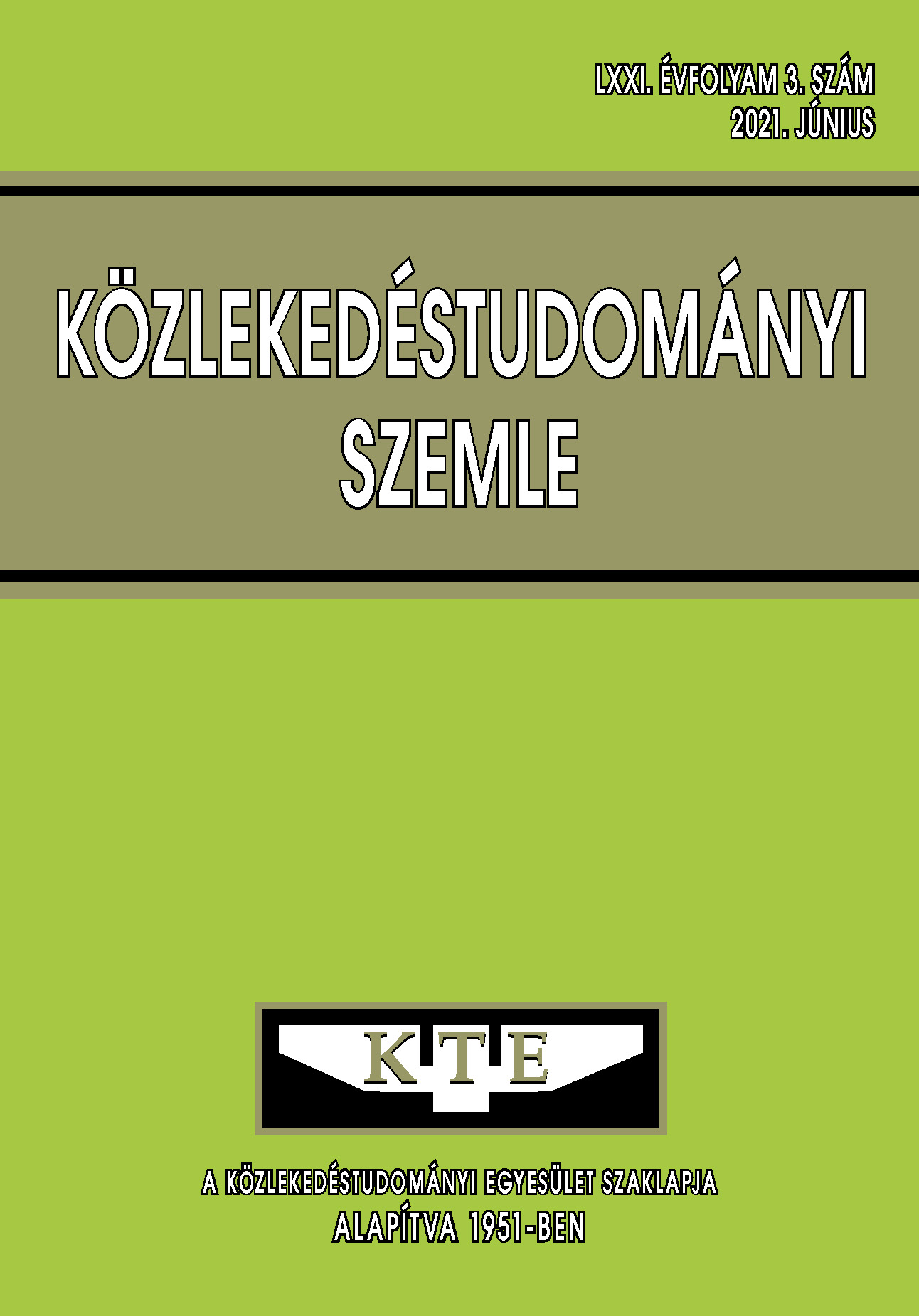The need for the regulation of the transport sharing economy systems
Abstract
This paper discusses the effects of the sharing economy for passenger transport. It is an undoubted fact that carpools can result in positive externalities in Hungary, too, and they can serve social mobility, which must also appear in the regulation. This would not mean that society does not recognize the rights of individuals to share their unutilized assets, but on the contrary, the aim would be to bring these activities under social control, thus guaranteeing the rights of passengers.
References
Szántó Péter: Mi az a sharing economy, Piac és Profit 2019.
Dudás, Gábor és Boros, Lajos (2019) A közösségi gazdaság (sharing economy) definiálásának dilemmái, Tér és Társadalom,
Dr. Szeri István: Költségmegosztók (sharing economy) terjedése a hazai közforgalmú közlekedésben, Városi Közlekedés 2019/1
Lazányi, Orsolya és Veress, Tamás és Bársony, Fanni (2020) Megosztásos gazdaság – a megosztás vagy a fogyasztás tere?
Szigeti, Cecília és Kovács, Zoltán és Egedy, Tamás és Szabó, Balázs (2019) Az ingázásból származó ökológiai lábnyom csökkentésének lehetőségei a közösségi gazdaság révén a budapesti városrégióban. Közlekedéstudományi Szemle, DOI: https://doi.org/f9v7
Articles published electronically are open access (OJS), freely available online and can be downloaded. Authors of articles are not charged any publication or publishing costs (APC). Users have the right to read, download, copy, print, and search the articles, or share the full text with a link.
Authors must declare that their submission has not been previously published in another journal, that financial support has been acknowledged, and that the list of references is complete and accurate, including specification of URLs and DOIs (if available). When submitting a draft article, each author approves the submitted version. Authors guarantee that the article is their original work. Authors are required to participate in the peer review process, follow the advice of reviewers, meet the prescribed deadlines, and, if any, withdraw the submission or correct errors.
All submitted articles are subject to peer review, where the editors request an independent evaluation from at least one expert, ensuring that the reviewer(s) have no conflicts of interest with the authors. The final decision is made by the Editor-in-Chief, who takes into account the evaluations and the suggestions of the editors. The editors and reviewers treat the submission confidentially.
The publisher and editors are committed to maintaining high ethical standards and to preventing publications that involve research misconduct. They follow the COPE guidelines on such ethical issues.
The authors retain copyright and grant the journal the right of first publication under the Creative Commons License (https://creativecommons.org/licenses/by-nc-nd/4.0), which allows others to share the work, while acknowledging the authorship of the work and the first publication in the journal.
The journal archives all published articles, and the journal's owner, the Hungarian Society of Transportation Sciences, will continue to operate the database even if the journal ceases to be published.















